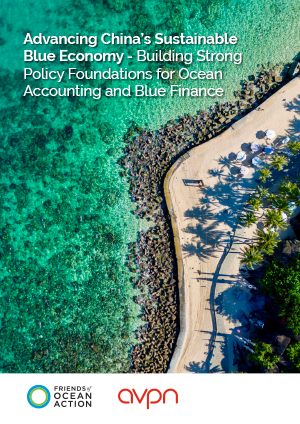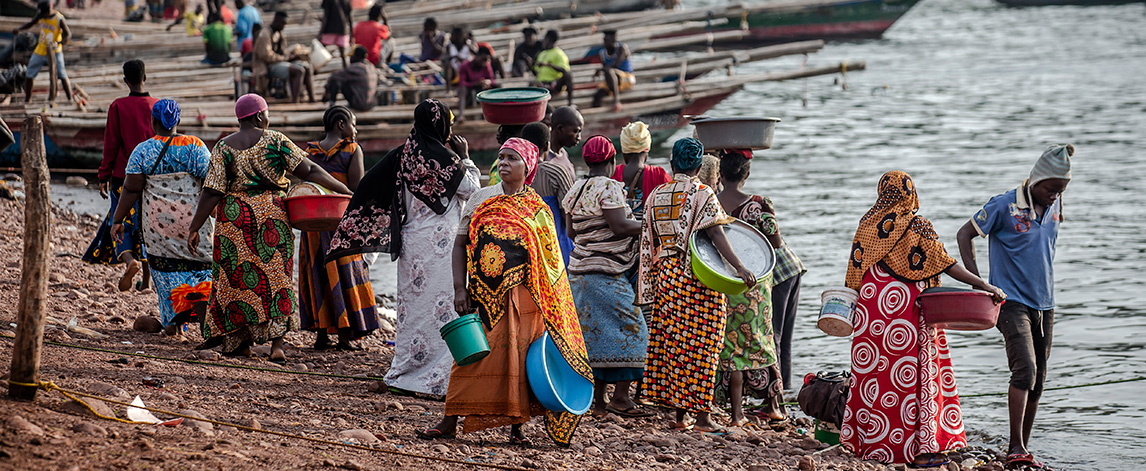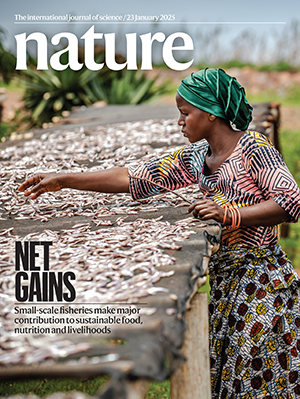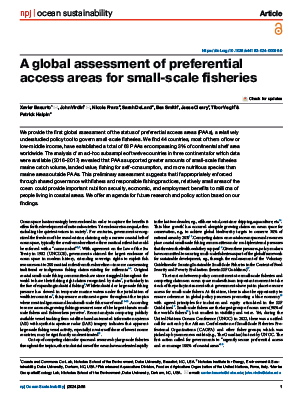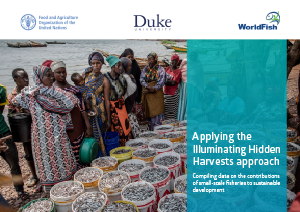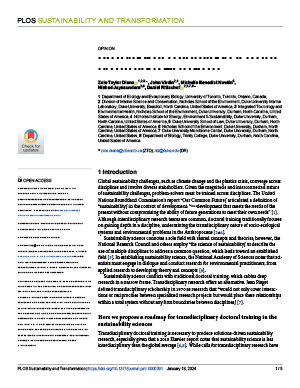Publications
Advancing China’s Sustainable Blue Economy—Building Strong Policy Foundations for Ocean Accounting and Blue Finance
The global ocean economy is currently undergoing profound transformation. In the face of multiple challenges, the issue of sustainable ocean development has become a central concern for the international community. As a major maritime nation and a key player in the global ocean economy, China has responded to the call for sustainable development and is accelerating its transition toward a more sustainable blue economy (SBE).
Assessing the Financial Services Sector’s Leverage in Advancing a Sustainable Ocean Economy
Prior research suggests that the global financial services sector could influence the sustainability of the ocean economy, particularly with better information on companies’ externalities (Barbier 2023; Sumaila et al. 2021; Jouffray et al. 2019). This brief summarizes preliminary, non-peer-reviewed findings from ongoing research that explores the potential influence of the financial sector on the sustainability of the ocean economy. It aims to contribute to and inform policy discussions emerging from the United Nations Oceans Conference in June 2025.
Collection: Small-Scale Fisheries
Nature Portfolio has launched a new collection showcasing small-scale fisheries research conducted by the Illuminating Hidden Harvests (IHH) initiative.
Illuminating the Multidimensional Contributions of Small-Scale Fisheries
Small-scale fisheries play a significant but overlooked role in global fisheries production and are key to addressing hunger and malnutrition while supporting livelihoods around the world, according to research featured on the cover of Nature. The data and methodology for this paper were produced within the framework of the Illuminating Hidden Harvests initiative conducted by the Food and Agriculture Organization of the United Nations, Duke University, and WorldFish.
A Global Assessment of Preferential Access Areas for Small-Scale Fisheries
We provide the first global assessment of the status of preferential access areas (PAAs), a relatively understudied policy tool to govern small-scale fisheries. We find 44 countries, most of them of low or low-middle income, have established a total of 63 PAAs encompassing 3% of continental shelf area worldwide.
From Concept to Practice: Financing Sustainable Blue Economy in Small Island Developing States, Lessons Learnt from the Seychelles Experience
Despite international enthusiasm, private-sector finance for sustainable development and the blue economy still makes up a very small percentage of global investment. Repurposed bonds and debt-for-nature swaps have gained support with policymakers, international organizations, and investors keen to align their investment with global goals and borrowing countries with large ocean domains seeking new sources of finance.
A Geopolitical-Economy of Distant Water Fisheries Access Arrangements
Fishing fleets and effort have grown throughout the waters of lower-income coastal countries in recent decades, much of which is carried out by vessels registered in higher-income countries. Fisheries access arrangements underpin this key trend in ocean fisheries and have their origins in United Nations Convention on the Law of the Sea's (UNCLOS’s) goal to establish resource ownership as a mechanism to increase benefits to newly independent coastal and island states.
Applying the Illuminating Hidden Harvests Approach
This document has been adapted from the research protocol used to compile country case study data and to produce the results summarized in the 2023 report Illuminating Hidden Harvests: The Contributions of Small-Scale Fisheries to Sustainable Development, coproduced by FAO, Duke University, and WorldFish.
Transdisciplinary Doctoral Training to Address Global Sustainability Challenges
Global sustainability challenges, such as climate change and the plastics crisis, converge across disciplines and involve diverse stakeholders. Given the magnitude and interconnected nature of sustainability challenges, problem-solvers must be trained across disciplines.
Fishing For Subsistence Constitutes a Livelihood Safety Net for Populations Dependent on Aquatic Foods around the World
Fishing for subsistence constitutes a livelihood safety net for poverty, malnutrition, and gender inequality for populations dependent upon aquatic foods around the world. Here, the authors provide global estimates showing that almost the same amount of small-scale fishers (52.8 million people) engage in subsistence fishing at some point during the year as in commercial employment (60.2 million people). The authors also use subsistence estimates from 14 country cases studies conducted as part of the Illuminating Hidden Harvests study to measure small-scale fisheries’ livelihood safety net function.

